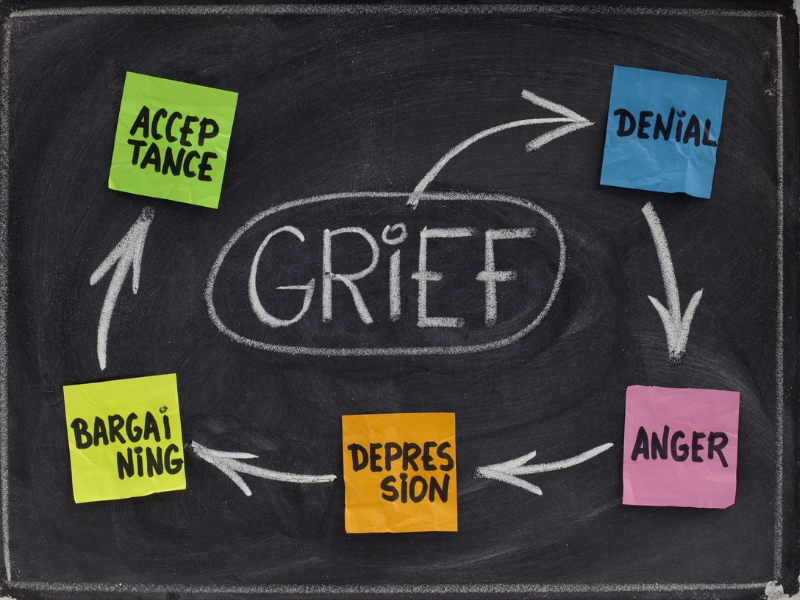Many people have come up with theories around the grieving cycle, which is nothing new, except I think it is important to recognize that people grieve about things other than someone dying.
I believe that when you are experiencing a deployment or extended absence that you move through many of the stages of grief. I also believe that your family member will also go through this cycle when they return from a deployment or extended absence too.
It is important to recognize that it is a natural cycle that takes everyone different amounts of time to move through. If your family member is not able to get past any of the stages listed below see your local doctor or go to your nearest clinic to get support and advice.

The Cycle of Grief
Stage 1: Denial and Isolation
There is nothing wrong and/or no one will understand so I would rather be alone, I need to be away from people – they don’t help, they will make it worse
Stage 2: Anger
I have been cheated out of time with my family, life has gone on with me, how could this have happened to me, people purposely make me angry and don’t even try to understand me
Stage 3: Bargaining
Just let me get through ___________ and I will deal with ______________, if you don’t tell anyone how I am feeling I promise to _______, let me do ___________ and I promise to never _______________, etc.
Stage 4: Depression
I don’t think that I can face this, I can’t go on, life is too hard, I just don’t care about the world around me, getting up in the morning isn’t worth it, my family would be better off without me around, etc.
Stage 5: Acceptance
I am ready to move forward with my life, things happen to good people and it is what we do afterwards that matters, I can handle this or get help and stop struggling on my own, I am a lot like other soldiers and I am doing okay, it happened and now I have to move forward, etc.

6 Tips to Deal with Deployment:
- Give space to the each other but also remember that you will need time to do fun things together to remind yourselves that life is worth being a part of.
- Listen to what the other person is telling you, rephrase what they are saying to ensure you are understanding what it is they are trying to tell you.
- Don’t make promises you can’t keep (ex. I promise not to tell anyone how you are feeling).
- Go to your doctor and talk about the things you are experiencing at home.
- Attend briefing sessions and sign up for counselling or a course together.
- Take time to celebrate the little victories too.
For more information about our books, blog or resources, go to here. To submit a tip of your own, write to Megan here.









